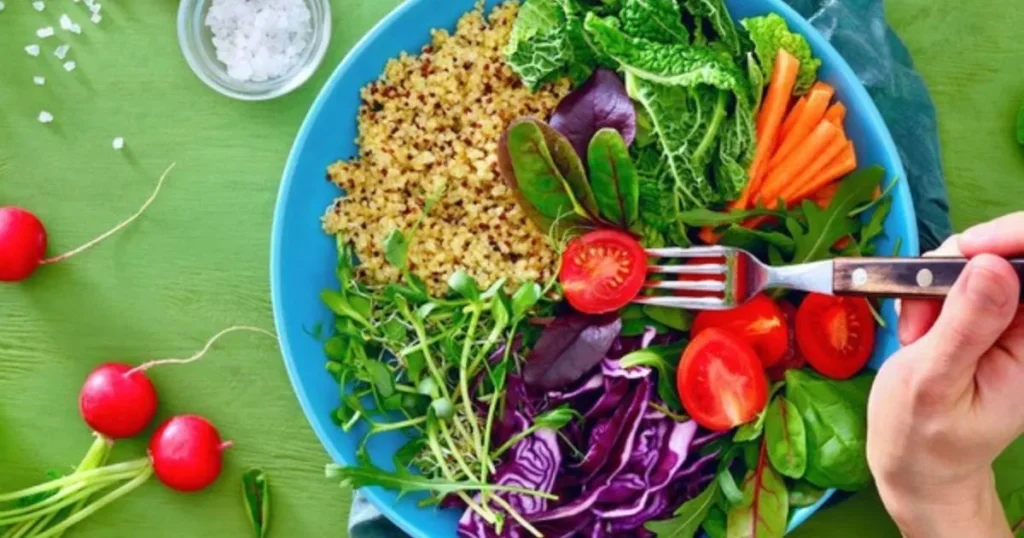Table of Contents
Knowing about protein
Protein is a vital food-based micronutrient, consists of amino acids, and helps perform many functions in the body. Your body can make different types of amino acids, but there are nine essential amino acids, that are a daily requirement of our food. Animal protein is known as complete protein because this can satiate the daily protein needs of our body. Animal protein can be obtained from different dairy products, poultry, meat, and fish. Protein can also be obtained from some plants, but they do not provide the required quota of protein.
Importance of Protein intake
Protein is a vital macronutrient to perform different bodily functions, like making nails hair, bones, and skin healthy. Protein also boosts immunity, maintains bodily fluids, creates enzymes, repairs and grows muscle, and maintains hormones(1) (2) (3).
In addition, a shortage of protein intake may cause numerous issues(4) relating to energy balance, muscle growth, disbalance in hormones, fatty liver, and thyroid(5).Scientific and clinical studies have also proved that intake of enough protein supports weight control, by reducing food cravings and activating hormones, which result in satiation(6).An increase in protein intake may lower blood glucose and liver fat, without making any changes in the body weight(7).
Recommended protein intake on a ketogenic diet
The recommended intake of Protein is 1.2 – 2.0 grams per kilogram of your body weight. This ratio of protein offers optimal health benefits to your body(8).If you have an ideal body weight or your body is rather muscular, the required amount of protein can be estimated by the kilograms of your body.
However, you should not take more than 30 g of protein per meal. In addition, your body height also suggests that how much protein on a keto diet can be consumed on a keto diet daily. Consider the following chart to know your minimum daily quota of protein.

Customize your protein consumption on a keto diet
Though the above chart describes an average target of daily protein intake, protein intake on the Keto diet is different for many reasons. You can customize your plan for a higher protein accordingly:
For maintaining muscles and losing weight
If you want to maintain muscle and lose weight, you need to take high protein per calorie. It is suggested that certain diets with 18 % – 25% protein are good for muscle maintenance(9).
Research shows a slightly high protein with a ratio of 1.2 g per kg of body weight has also prevented muscle loss(10).
For rapid wound healing
Protein is a proper element in wound healing. Patients with wounds can take high protein for a rapid healing of their wounds. Although, some specific amount of protein is not recommended, 1 to 1.5 g is suggested after surgery to recover the wounds. In case of pressure or deep ulcer the suggested protein amount is 1.5 to 2 g per kg of body weight. Similarly, in the case of a burn wound, the amount is recommended from 1.5 to 3 g (11).
Stay active and healthy in old age
Intake of higher Protein is essential in old age for maintaining muscle mass. Studies have established that sarcopenia is found in older adults from 2% to 37% in a community. This causes difficulty in movement, standing, and physical performance. The sarcopenic people face the perils of falling and getting fractured (12).
However, if old people start taking more than 20% calories by consuming higher protein, they can maintain their muscle health and mass. This will also help them to improve their physical function and to avoid sarcopenia.
Cardiovascular risk in children aged between 2 to 18 years
To keep your heart healthy is essential for a good physical performance. Research shows that a diet consisting of 20% protein calories in comparison with 16% protein reduced blood pressure and cholesterol, and resulted in a decrease in cardiovascular risk in children from age 2 to 18 years. Such a higher protein consumption is also good for reducing the same cardiac problem in adults (13).
Beneficial in Type 2 Diabetics
There is much discussion on the good and negative effects of consuming much protein for type 2 diabetics. A study suggests that consuming 30% of protein calories by men with type 2 diabetes has been proven beneficial in controlling glucose and insulin sensitivity (14)
Resistance training
Active people involved in resistance training including endurance exercises and weight lifting require higher protein consumption than the sedentary people of the same size and weight. They need to reach the top of their protein intake to maintain their muscle. The daily intake of 1.6 g / kg protein can help them raise their muscle mass (15).However, there is a limit to how rapidly you increase muscle mass, because consuming much protein does not matter here.
Summary
You can intake 1.6 g/kg protein or aim for 20% to 30% of calories from protein consumption. You can also adjust this intake viewing your needs.
Foods providing daily required protein
This is not complicated to know how much protein can be consumed to meet the daily requirements. The given quantity of foods will help your intake of 20 to 25 grams of protein as a daily requirement.
- 100 grams/ 3.5 oz: Peanut, almond, or pumpkin seeds
- 100 grams/ 3.5 oz: meat, fish, or poultry
- 100 grams/ 3.5 oz: hard cheese
- 210 grams/ 7 oz: Cottage cheese
- 240 grams/ 8 oz: Greek yogurt (plain)
- 04 Eggs (Large)
- The same quantity of other vegetables, seeds, and nuts provides only 2 to 6 grams of protein.
The following three tables will suggest different levels of daily consumption of protein by using the same foods:
About 70 grams of protein

About 100 grams of protein

About 130 grams of protein

Conclusion
Protein is important for the proper functioning of our body and boosting immunity. This supports controlling body weight. Animal protein is considered a complete protein. It can also be taken from plants. A shortage of protein can cause many physical disorders. An intake of 1.2 to 2.0 grams per kg of body weight is recommended to get good health. However, you can customize protein intake as per the requirement to maintain muscle, lose weight, healing of wounds, risk of sarcopenic and cardiovascular, and Type 2 diabetes. You can take protein from different foods.
Frequently Asked Questions
How much protein should I consume on a ketogenic diet?The recommended protein intake on a ketogenic diet can vary, but a standard guideline is around 1.2 to 2.0 grams of protein per pound of lean body mass. Individual factors such as activity level and fitness goals play a role in determining the right amount.
Can consuming too much protein kick me out of ketosis?
A diet high in protein can cause gluconeogenesis, the body’s process of converting protein to glucose. However, the extent to which this impacts ketosis varies among individuals. Finding the right balance is critical.
Are specific protein sources best for a ketogenic diet?
Meats, poultry, fish, eggs, and dairy products are ideal protein sources on a ketogenic diet. Plant-based sources like tofu and tempeh can also be included. Choosing protein sources that fit your dietary preferences and restrictions is essential.
Is building muscle on a ketogenic diet with moderate protein intake possible?
Building and maintaining muscle on a ketogenic diet with an appropriate protein intake is possible. Protein is essential for muscle synthesis, and finding the right balance helps support muscle health.
Can I rely on protein supplements to meet my protein needs on keto?
While protein supplements can be convenient, obtaining nutrients from whole foods is best. However, supplements like whey protein or collagen can be helpful if you struggle to meet your protein goals through diet alone.
Can vegetarians and vegans follow a ketogenic diet with sufficient protein intake?
Yes, vegetarians and vegans can follow a ketogenic diet by incorporating plant-based protein sources like tofu, tempeh, nuts, and seeds. Careful planning is necessary to ensure adequate protein intake.
- The Ultimate Keto Meal Plan: Benefits and Recommendations - June 28, 2024
- Keto Gummies: Are They Safe for Weight Loss? - May 23, 2024
- Shiitake Mushrooms: 9 Health Benefits And Uses - April 19, 2024


